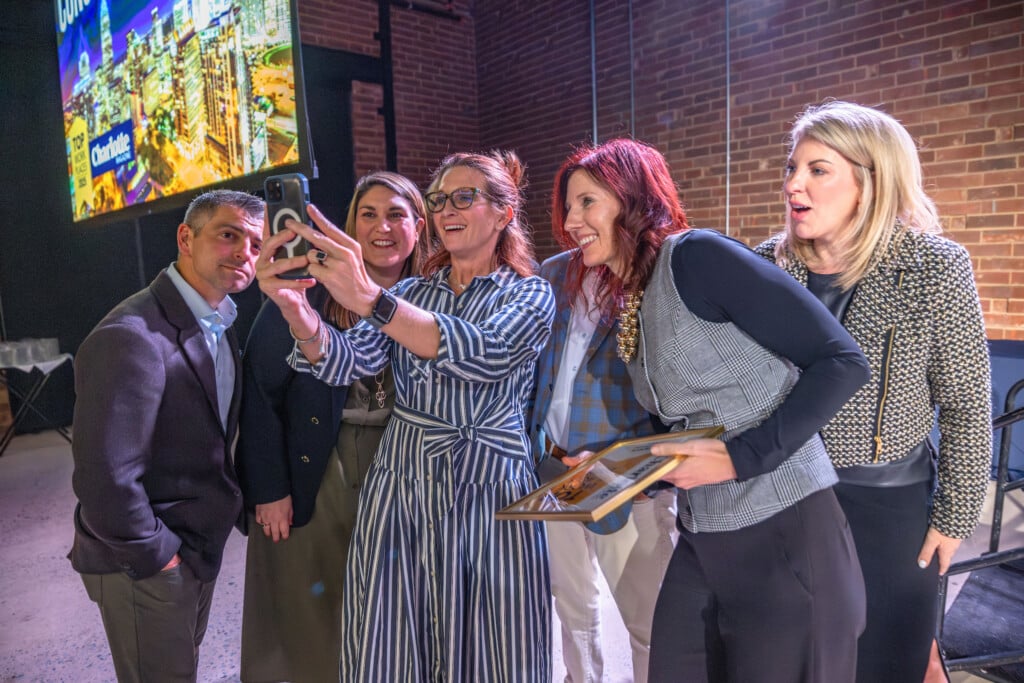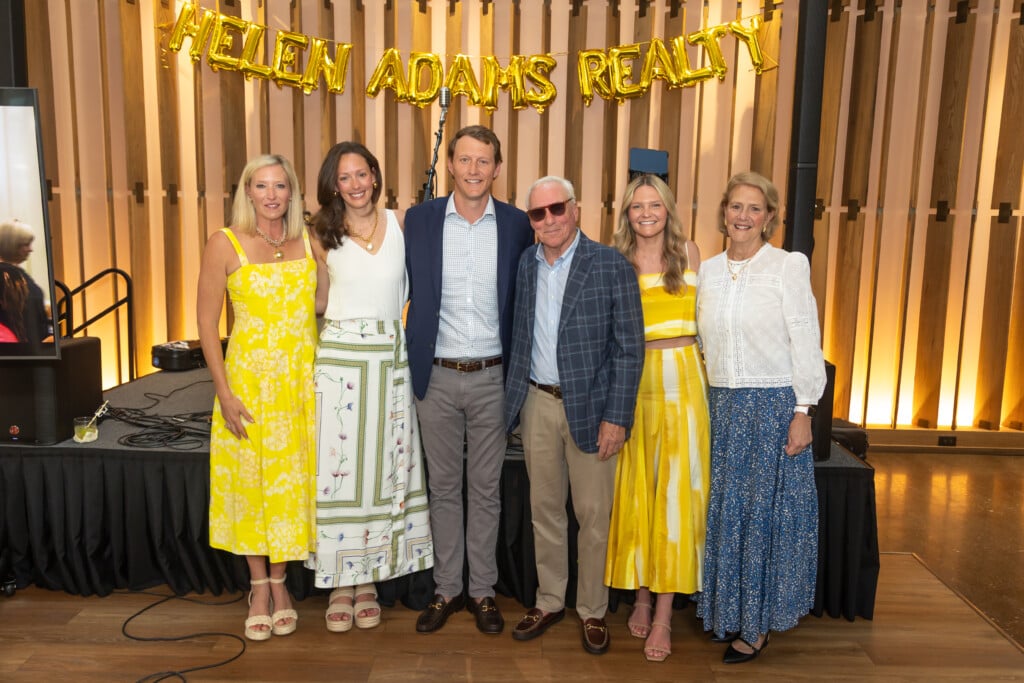They’ve Been Given A Change of Heart
Atrium Health Sanger Heart & Vascular Institute saves a growing number of people through heart transplants. Meet three of them.

Since 2021, Atrium Health Sanger Heart & Vascular Institute has more than doubled its annual rate of heart transplants, from 28 in 2021 to 71 in 2024. It’s the product of innovation, improved access, “and a commitment to meeting patients where they are,” says Atrium spokesman Tim Calahan. In 2019, Sanger Heart & Vascular launched an internal network that allows Atrium hospitals throughout the Charlotte region to quickly identify and transfer patients who might benefit from advanced therapies at other Atrium locations. Since then, Atrium has expanded its evaluation process; broadened eligibility for patients; added clinic locations and transplant specialists; adopted technologies to increase organ availability; and sped up transplant candidates’ evaluations and placement on the list. As of last year, Atrium had performed 850 adult heart transplants since it launched the network. Here are three recipients.
Cheryl Mastroianni
On the Monday after Thanksgiving 2023, Cheryl Mastroianni, a 44-year-old Atrium Health Pineville nurse anesthetist and mother of three, came home from work around lunchtime. She planned to eat and work out before her daughters got out of school. But Cheryl started to feel ill. She went into the home office of her husband, Greg, and told him. That’s when the chest pains started. Anxious, Cheryl told Greg they might need to go to the emergency room. But the couple decided to wait because they had to pick up their kids.
“All of a sudden,” Cheryl says, “I stood up to go to the bathroom, and I projectile vomited everywhere, and then I just, like, went down.”
Greg called an ambulance, which arrived within three minutes and took her to the hospital where she worked. On the way, Cheryl went into cardiac arrest. The medical team spent an hour administering CPR with an automated machine before they could put her on ECMO, a machine that functions as a person’s heart and lungs. That night, they transferred her via ambulance to the Dixon Heart Unit at Atrium Health Carolinas Medical Center.
Cheryl had been diagnosed 12 years earlier with Hodgkin lymphoma, which doctors treated with radiation to the lymph nodes in her neck. It worked. But radiation can damage the heart, and an oncology cardiologist—a doctor who specializes in heart issues related to cancer treatment—carefully monitored her recovery. “It was totally God, in my opinion,” Cheryl says, “that my cardiologist was actually at Dixon Heart that night I came in, and he came to see me. He told my husband, ‘Greg, we would have never—even two days ago—predicted this would have happened to her. She’s been rock-solid stable with her heart for years now.’”
Cheryl was given high priority on the transplant list while she remained unconscious and on ECMO. Doctors were worried she had sustained brain damage during the heart attack. After eight days, her condition continued to decline, and her team inserted a catheter-based heart pump called an Impella device. She stabilized and woke up on Dec. 13. Cheryl continued to get better, and on Christmas Eve, doctors removed the Impella device to see how her heart would function on its own. She immediately went back into heart failure, and they had to put her back on the ventilator and reinsert the Impella. “I boo-hooed my eyes out as I was already gasping for breath,” Cheryl says. “And I remember telling my husband, ‘I love you,’ ‘Merry Christmas,’ and, ‘Hopefully, we’ll see each other again.’
“I woke up on New Year’s Day, and I remember my mom at my bedside, and I said, ‘Merry Christmas,’ and she said, ‘Honey, it’s New Year’s.’ And it was at that point when they told me that I needed a transplant.”
Cheryl received her new heart on Jan. 11, 2024—her youngest daughter’s second birthday. “Then, you know, comes the real work.” She got to go home on Jan. 29, but she had to relearn to walk, talk, and swallow; she had suffered a stroke and had a paralyzed vocal cord from the chest trauma. “I had to relearn all the things we take for granted as adults,” she says. In the first year after her transplant, she contracted several viruses, including hepatitis C. “It was definitely eye-opening as a medical professional to be on the other side.”
Physically, Cheryl says she’s much better and regaining strength every day. “But I feel like I still have a lot of processing to do. I feel like I’m stuck between gratitude and grief. I’m just so grateful for the gift of life, but I also have so much grief—from losing my heart, for the donor’s family, grief from losing my career because I’m not going to be able to go back to work. … Being a nurse is a high-stress job where you’ve got to be on your game, and I’m just not on my game.” But she plans to go back to work in hospitals in a different capacity: as a volunteer who works with transplant recipients and their families. She’s also training her golden retriever puppy to be a hospital therapy dog. “I just want to continue,” she says, “to be there for patients.”
Dillon Sutton
It started with a cough in December 2023. Dillon Sutton assumed he had a cold. But by March, the then-31-year-old Duke Energy battery technician, who’d previously worked out six days a week, couldn’t walk from the living room to the kitchen without struggling to catch his breath. It got bad enough that he went to the doctor. “I used to never go,” Dillon says. “I’d just tough everything out.”
To his shock, doctors told him that his heart was failing. (The failure caused fluid buildup in his lungs, which triggered the coughing.) A decade earlier, he’d been diagnosed with atrial fibrillation, or AFib, an irregular and rapid heartbeat that increases the risk of heart failure or stroke. But Dillon had undergone a procedure called an ablation, which creates scars on the heart to block abnormal electrical signals, and it seemed to fix his AFib.
So how had the young and in-shape Dillon ended up in heart failure? Dillons says doctors still aren’t certain, but they told him it may have been caused by a virus. They drained the fluid from his lungs and put him on maintenance medications. The treatment worked—for about two months.
By May 2024, Dillon felt worse than ever. He went to Atrium Health Sanger Heart & Vascular Institute, about an hour from his home in Lincolnton. His heart was failing again, and this time it was in such bad shape that other organs were failing, too. He was given the highest priority on the transplant waiting list, and doctors operated on July 3. His wife, Casey, eight months pregnant with their first child, sat in the waiting room, praying that she wouldn’t have to raise their daughter alone. Dillon, usually stoic, admitted that he’d done the same before he went under.
When he awoke from surgery, despite the pain and soreness, Dillon says he instantly felt better. “I think my heart was weak for a while before I noticed,” he says. He was discharged nine days later—just six days before baby Zoie was born. “Knowing I was about to have a child really helped me fight through everything to stay here. … I really healed up faster than I expected and was able to start helping more,” Dillon says in April, nine months after his transplant.
He says the experience taught him a lesson, too: “It definitely changed my outlook about going to the doctor and stuff if I have any issues. Now I know to get checked it I have any problems,” he says. “I’m just glad at how well everything went and to still be here. That really caught us off guard, but my daughter and family really helped me recover.”
Carson Reed
Carson Reed was a healthy 17-year-old before last August. She attended Cherryville High School, played volleyball, danced competitively, and auditioned for theater roles. Then she contracted COVID. The virus caused myocarditis— heart inflammation—and heart failure.
Carson was hospitalized at Levine Children’s for a month and put on lifesaving support. Her heart and organs recovered with treatment, and she was back home in early September. She went back to school and resumed her regular activities.
But in February, Carson caught the flu. Two days after she tested positive, she began having symptoms of heart failure again. Her parents took her to the emergency room in Shelby, near their home in Cherryville, and she was airlifted to Atrium in Charlotte. She declined rapidly after she arrived and was placed on an emergency ventilator and ECMO. (While in surgery to put her on ECMO, Carson’s heart stopped, and the surgeon had to revive her.) She also developed compartment syndrome in her legs, a painful and dangerous condition that causes fluid buildup. Her legs had to be drained via emergency surgery.
On Feb. 27, two weeks after being put on the transplant list, Carson received a new heart. In April, Carson said she was “feeling good, all things considered.” She still tired easily, her legs still hurt, and she had lingering bruises on her chest and legs. “Mentally,” she says via email, “this whole experience has been a battle, but I’m happy to say I’ve tried to keep an optimistic outlook on it all. This journey has had its lows where I have felt intense depression and anxiety, and those effects still linger on today. Yet, I am so grateful and lucky to be alive, with a new heart that puts a smile on my face every day.”
Like all transplant patients, Carson will take daily medications to ensure that her immune system doesn’t attack the organ. But transplanted organs don’t function forever. On average, they last about 10 years, but they can last up to 40. Either way, because she’s so young, Carson will likely require another transplant. That doesn’t stop the optimistic teen from living her life, though. Quite the opposite.
“I’ve seen twice now that life can simply be unfair, and it can change on you in a second, so live it to the fullest,” she says. “I’ve learned to appreciate the little things, take nothing for granted, and not waste time stressing out over things that truly don’t matter. Life is such a beautiful gift that I’ve learned to appreciate now more than ever.” Carson graduated from high school in May and will attend UNC Chapel Hill, where she plans to become a cardiac nurse to help others like herself.








